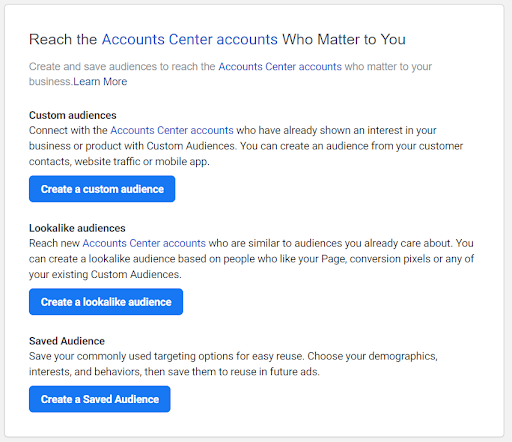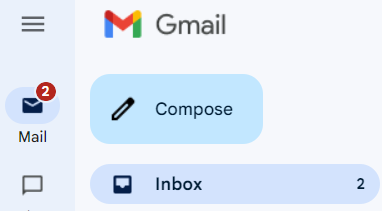9 types of lead generation strategies your agency needs to leverage
Lead generation is the first step in securing success for your digital agency. It's also an ongoing process that helps you scale your marketing business and support your clients in doing the same.
Want replies? Download your free sales email templates today!
As a marketing agency, you can leverage many methods to identify and cultivate potential clients. Some types of lead generation common today include content marketing, search engine optimization (SEO), email marketing, and social media marketing and advertising. Let’s dig deeper into each of these options—and some others—below.
1. Content marketing
This is one of the most popular types of leads in digital marketing because it works across all industries and business types. If you want to start a digital marketing company, you must have valuable, helpful content that attracts and nurtures potential leads.
Content today goes beyond the text of articles and blog posts and includes other media, such as videos and infographics. Your content marketing strategy should consider what your target customer wants and needs and address those challenges with comprehensive storytelling narratives that include something for every type of learner.
Don’t forget to bring your content strategies back around to sales by including effective and targeted CTAs. These don’t always have to—and should not always—include hard CTAs. You can balance those with gentle calls to action to encourage potential leads to learn more or explore options.
2. SEO
Whether you want to start a digital marketing agency with no experience or grow an existing digital agency, search engine optimization is critical to success. These on- and off-page efforts help support inbound lead generation strategies by ensuring your pages show up for the right searchers.
SEO efforts should include:
- Effective keyword research. You must know how your target audience is looking for information and products related to yours.
- Keyword implementation. Use relevant keywords with high searcher intent on your pages. Don’t stuff them in, but place them in high-value locations such as subheadings, intro paragraphs, and image captions.
- Build backlinking opportunities. Create high-quality content people will want to cite or recommend to others to optimize backlinking.
- Optimize page performance. Slow-loading, confusing, or otherwise dysfunctional pages can hurt SEO performance.
3. Social media advertising
Social media advertising can be an excellent addition to your marketing agency services and a great way to generate leads for your own business. You can use tools on Facebook, Instagram, TikTok, and other social platforms to target your ideal user on the platforms they’re already using.
One benefit of social media ads is that they show up natively—meaning they’re in the feed with organic social posts. This can help increase engagement with users, as they’re scrolling through already primed to interact with content.

4. Referral marketing
When it comes to types of leads marketing organizations can drive, referrals tend to be among the most qualified. Customers or clients who are referred to a business tend to:
- Be more loyal to the business than non-referred customers
- Generate high profit margins for the business
- Be up to four times more likely to make referrals themselves (Annex Cloud)
Incorporate referrals into your lead generation strategies by:
- Creating a referral rewards program. Offer discounts or other perks to existing clients who refer new business your way.
- Partnering with current clients. Keep current clients informed when you launch new services and let them know how much you appreciate any referrals.
- Making referrals easy. Create landing pages clients want to link to or offer easy access to links, images, and other resources they can use to refer your brand on social media.
5. Email marketing
Is there anything more compelling than the flashing number on an email inbox? That call to open new messages means emails still have fairly high open rates, and the return on well-managed email marketing can be 400% or more.
Email helps you build potential client relationships and ensure your agency name remains relevant as other businesses consider marketing options.

The first step to email marketing is building a list, as you want permission before you hit inboxes with marketing emails. Consider what you can offer in exchange for list sign-ups. Valuable lead generation resources include:
- Free webinars. What helpful information can you give away while showing off your expertise in digital marketing to entice people to sign on for more?
- Checklists. Consider offering checklists for SEO, email marketing, social media marketing, or something specific, such as launching a new product landing page.
- Ebooks. Scour your blog posts and combine some top performers with new information for a free download.
6. Paid search advertising
Organic search is a powerful long-term lead generation tool. However, the best results tend to come when you combine organic efforts with paid search. That’s especially true in cases that involve a digital agency startup or a new product launch. Organic SEO takes time to build traction, but PPC ads can provide almost immediate return.
Obviously, a high return on investment does require high-quality ad campaigns. Make sure you:
- Align campaign keywords with searcher intent. Always do your research first, and continue to verify keywords throughout the campaign.
- Create compelling ad copy. Ad copy is short, so make every word count. Speak immediately to the interests and needs of the audience, targeting pain points with positive solutions.
- Tweak ads and campaigns as you go. The great thing about PPC is that you can make on-the-fly changes and see results in real-time. Use analytics to make data-backed decisions and tweak your campaigns for continual improvements to lead generation.
7. Landing page optimization
If your digital marketing strategy doesn't include quality landing pages, your lead gen machine could be flawed. Perfect ad or social media campaigns can feed a constantly leaking funnel if landing pages are confusing, misaligned, or failing to support a good user experience.
Every landing page should:
- Address something specific. Avoid confusing your user with too many offers. Consider making a landing page for each unique offer or service. Ensure the landing page aligns with the intent of your ad campaign.
- Have a streamlined and brand-appropriate design. Pages stuffed with too many images, flashing text, and other discordant visuals can look spammy, ensuring users bounce quickly. At the same time, a wall of text doesn't work well for most internet users. Find a balance and ensure your landing page has a clean branded design.
- Include effective CTAs. Tell people what to do next with effectively placed CTAs. Use A/B testing to figure out what type of CTAs work for your audience and where they should go. Pro tip—test them above the fold.
8. Contests or giveaways
For some types of agencies or clients, contests and giveaways can increase lead generation. Contest-related content can increase engagement on social media, increasing reach and bringing new potential audience members to your content.

9. Lead qualification
Your marketing agency strategy shouldn’t focus solely on quantity of leads. It must generate various types of qualified leads, which can be challenging. Only around 70 percent of marketers believe their leads are high quality (Hubspot).
Implement lead scoring tools in your funnel to identify quality leads and where they came from. That way, you know which of your efforts is connecting you with potential clients that are most likely to convert, and you can invest more in those channels.
Importance of diversifying lead generation strategies
As you work to find digital marketing clients, make sure to consider a wide range of types of leads in lead generation. You don’t own many of the channels you’ll work with as a digital agency, and over-reliance on a single channel managed by someone else can put you in a risky position.
The same is true for your target audience. As you grow your agency—or your clients’ businesses—consider how to expand to new target audiences to increase sales opportunities. Remember, too, that your target audience evolves constantly. Continue to research consumer behavior, technology, and client needs so you can adapt your lead generation mechanisms to align with those changes.
How to choose the best channels for lead generation
Different types of lead generation work for various digital marketing niches better than others. Find what works best for your agency or clients by:
- Conducting marketing research. Look for trends with your target audience. What channels do they already connect with? Can you identify low-hanging fruit or channels your audience expects you to support?
- Analyzing existing data. Review the performance of past campaigns or efforts. What channels generated the highest number of leads? Which generated the best quality leads?
- Testing channels. Use A/B testing methods to compare performance on various channels so you can allocate marketing budgets and time to the best options.
- Integrating offline channels. It's easy to get caught up in the digital nature of marketing today, but don't forget the value of integrating offline channels for a comprehensive approach to lead generation.
[adrotate banner="68"]

